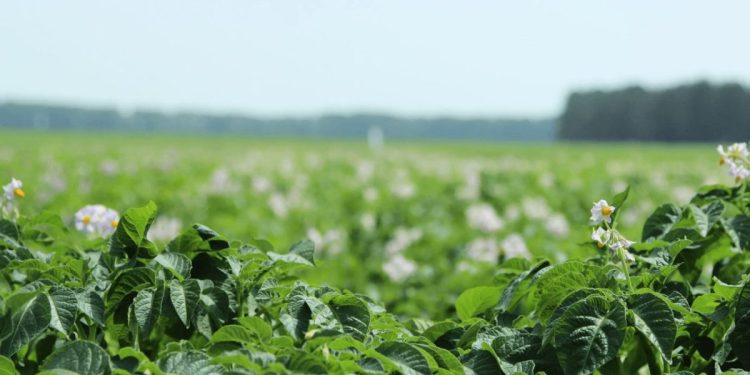Wet, soggy conditions have delayed the planting of potatoes in Horowhenua.
Potato growers are in the thick of planting at the moment, but the very wet winter has made things tough going for some growers.
Flooding in Horowhenua last month delayed the asparagus harvesting season, after some fields were left completely underwater.
The head of Potatoes New Zealand, Chris Claridge, said it was delayed potato planting in the region too.
“The weather has impacted some growers, but overall the planting is still in progress,” he said.
“We experienced a significant wet period in the Horowhenua and Manawatū region in which the growers around Palmerston North and Levin experienced a great deal of wet weather, which has delayed their planting. Obviously, the fields have to dry out before you can get in there and cultivate.”
Claridge said plantings were on track in the rest of the country however, despite recent rainfall in the Canterbury region.
But don’t worry about any french fry shortages – Claridge said does not expect the delays will result in supply issues.
“The growers in the Horowhenua, we have under a dozen growers there, and they supply crisping, which is the crisps that you eat and potatoes for processing for hot chips and for export.
“The production plants can modify the schedule and can accept potatoes at various times during the season, so they’re not too worried – if there’s any delay, it’s made up with supply from other regions.”
Meanwhile, Claridge said demand for potato exports was starting to pick up again after reaching serious lows during the pandemic.
Exports to key markets plummeted in late 2020, but Claridge said the industry had been buoyed by consistent demand from the Pacific Islands.
“We export two types of potato products, we export fresh potatoes to the Pacific Islands and that continued during the peak of Covid-19,” he said.
“Prices were depressed because of course, the Pacific Islands didn’t have their normal tourism trade, so it wasn’t as much money or as much demand.
“But it’s coming back – we export about 20,000 tonnes of potatoes a year to the islands.”
Claridge said exports of potatoes elsewhere have been hampered by Covid-19 lockdowns.
“But it is coming back, the prices are lifting, and there’s increased demand in Australia and worldwide.
“Coupled with that, there are considerable shortages now in Europe because of their massive drought that has just experienced and because of the cost pressures, and of course, the availability of nitrogen in Europe because of the Ukraine war is impacting on agricultural production generally.”
And Claridge said demand for frozen fries was increasing in Australia, as more people return to bars and cafes and order the ever-popular side of fries.







